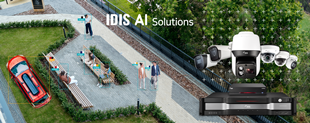Kozak says that this partnership could be a bit different to other major pairings that the market has seen in recent years in that, this time, Google is investing $450 million, something it did not do when partnering with Brinks Home Security. Here, Blake Kozak discusses the potential scenarios of how the new partnership may play out and the changes that the market may experience as a result.
"For Google, this partnership will bring a needed boost to its product sales – both for cameras and smart speakers. With newer brands, such as Wyze, that come at a much lower cost and Arlo partnering with alarm companies in Europe, Google Nest was on the brink of getting lost in the shuffle. Further to boosting camera and smart speaker sales, Nest Secure will also receive a much-needed infusion of new business leads in order to remain relevant against the success of others like Simplisafe and Ring Alarm. Also, Google’s cameras are inherently more difficult to install (outdoor cameras) compared with the competition that offers battery-operated cameras. So, with a fleet of installers and pros at ADT, Google could see an uptick in sales and installs by consumers that normally would not be looking at a Google Nest system due to complexity."
"For ADT, the benefits include a way to control costs while simultaneously going after the 70% of homes that do not have a security system in the USA. Although ADT just recently introduced Blue by ADT (from its Lifeshield acquisition), marketing this product offering to consumers could be futile, considering the marketing budgets of competitors, like Simplisafe. So, to control costs, working with Google is a clear advantage due to the brand recognition. Moreover, the machine learning and hardware expertise of Google will far outpace the newly acquired Lifeshield business."
Over the past few years, ADT has tried many times to get into the DIY market without success. The partnership with Samsung Smartthings did not go well and the parentship with Amazon/Alexa Guard to generate leads for ADT did not pan out either. In the latest Omdia alarm monitoring report, DIY installed systems that are professionally monitored (and smart/connected) equated to about 1.1 million accounts in the USA in 2019. Compared to 1.7 million MSO accounts and 22 million security provider accounts. Consequently, the success of Simplisafe, Frontpoint, Livewatch and similar brands have been successful but are far from capitalisation on that remaining 70%. This is the reason why Kozak believes that this equity investment from Google could be the differentiator the industry was looking for to bring a tech company together with an alarm brand.
Blake Kozak believes that the short-term impact of this partnership is an influx of new business for both Google and ADT. For Google, it means more sales of its hardware and Nest Aware service through channels that align better with the Google messaging which has a tendency to favour professional assistance and curated partnerships – compared to Amazon that is more focused on volume and using Alexa Fund to test what products will work with consumers. "The short-term impact for ADT will be a boost in alarm accounts that come with fewer costs. Plus, ADT will get this boost with minimal marketing efforts due to the strength of Google’s brand," suggests Kozak.
However, he believes the long-term implications are more complex. "Google could be using this opportunity to trial what an alarm company acquisition could bring. Although Google Nest already has professional channels and pro installers, ADT could open additional doors for Google Nest to compete more directly with Amazon and even Geek Squad by having an armada of installers and professionals that could sell not only alarm monitoring and security but other services as well."
The long-term impact for ADT is less clear due to its existing contracts with Alarm.com and other providers. "ADT is not likely to end its relationship with Alarm.com because of what the provider brings to ADT’s professional business – from dealer support to consumer experience, and transitioning millions of accounts over to a new platform would be costly," explains Kozak. "Plus, the analytics that Alarm.com provide would be on par with the video analytics provided by Nest Aware – but likely at greater cost for ADT but more lucrative for ADT dealers. But a more comprehensive deal with Google could help ADT shed more costs and debt by selling off Lifeshield (Blue by ADT) and discontinuing R&D for its own camera and video doorbells."
Kozak notes that despite optimism from Wall Street on this deal, the DIY install market with professional monitoring has not been as disruptive as originally expected. Although Ring Alarm is projected to be in the top 10 of alarm brands in the next few years, Google’s platform has struggled so far and the industry mainstays such as Protect America (accounts acquired by Brinks Home Security) and Simplisafe haven’t taken considerable share from traditional providers, such as ADT or Vivint.
"For the Google/ADT partnership to have a different outcome, the brands will need to be creative, perhaps finding a unique mix of services and hardware that take the best from Ring, Frontpoint, and Protect America, among others. Although this deal represents what many have been discussing in terms of tech companies taking over the alarm monitoring industry, it will likely be 3Q2021 or later before this deal blossoms into more than a DIY/pro monitoring partnership," concludes Blake Kozak.

















